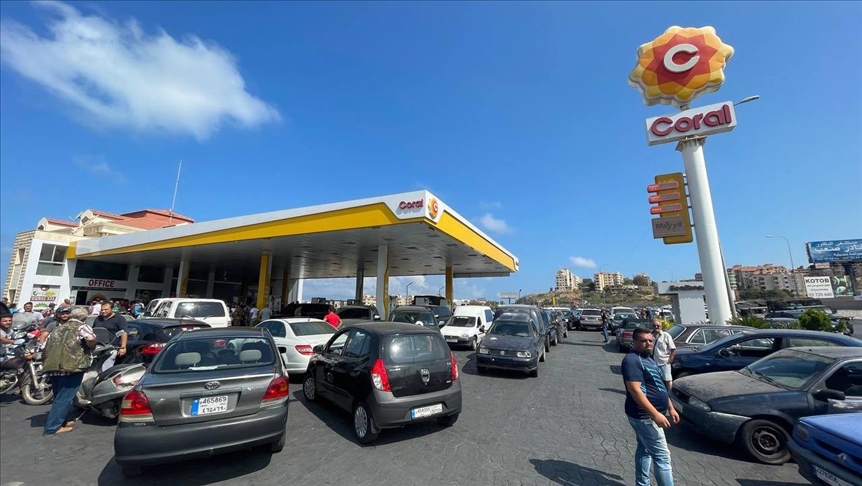Protesters attempt to raid Lebanon's central bank governor’s house after decision to lift fuel subsidies
Demonstrators block fuel tankers in different regions, seize fuel
 Lebanese citizens wait in long queues to fill their gas cylinders and to fill their vehicles at gas stations as economic crisis worsens in Beirut, Lebanon on August 12, 2021. ( Wassim Samih Seifeddine - Anadolu Agency )
Lebanese citizens wait in long queues to fill their gas cylinders and to fill their vehicles at gas stations as economic crisis worsens in Beirut, Lebanon on August 12, 2021. ( Wassim Samih Seifeddine - Anadolu Agency )
BEIRUT
Demonstrators in Lebanon attempted to raid the house of the central bank governor late Friday after his decision to completely lift subsidies on fuel, according to state media.
Dozens of protesters gathered in front of Riad Salameh’s house in the Keserwan district, northeast of Beirut, asking him to reverse his decision, said Lebanon's National News Agency (NNA).
The crowd attempted to break through a security barrier around the house while one demonstrator was injured in clashes with security forces.
Meanwhile, in other parts of the country, young people stopped diesel-laden tankers and seized fuel.
The country’s caretaker prime minister announced Thursday his rejection of Salameh’s decision to lift fuel subsidies.
Hassan Diab said his decision "is against the law and does not take into account the reality of the deep living and social crisis."
Diab called for an emergency ministerial meeting to discuss the central bank governor’s decision.
Country in crisis
Lebanon has been unable to form a new administration since the resignation of Hassan Diab's Cabinet on Aug. 10, 2020 -- six days after a massive blast at the Beirut Port.
On Wednesday, the central bank said it is no longer able to support the purchase of fuel.
A foreign currency shortage and devaluation of the currency have caused the central bank's dollar reserves to dwindle from an average of $38 billion at the end of 2019 to its current average of $16 billion.
Official estimates put the cost of the Lebanese subsidy program for basic materials at about $6 billion annually, half of which goes to subsidize fuel.
According to a study by International Information, a Beirut-based research and consultancy firm, stopping the subsidy would lead to a significant rise in fuel prices, with the cost of one can of gasoline expected to jump from about 75,000 pounds ($50) to 336,000 ($223) at a time when the minimum wage is 675,000 pounds ($448).
The bank has supported fuel imports by securing the dollar to importers at an exchange rate of 3,900 pounds ($2.59) per dollar, while its exchange rate in the parallel market in recent days topped 20,000 pounds ($13.30).
The Arab country is facing a severe economic crisis, with the currency losing nearly all of its value against the dollar and streets witnessing massive protests and rallies.
Observers say lifting fuel subsidies would raise prices of other goods and services that depend on fuel to generate electricity for production such as factories and private bakeries.
*Writing by Zehra Nur Duz.








